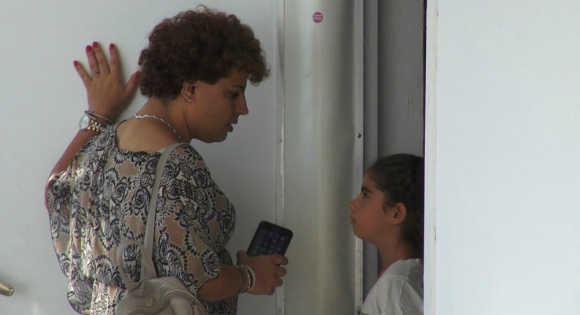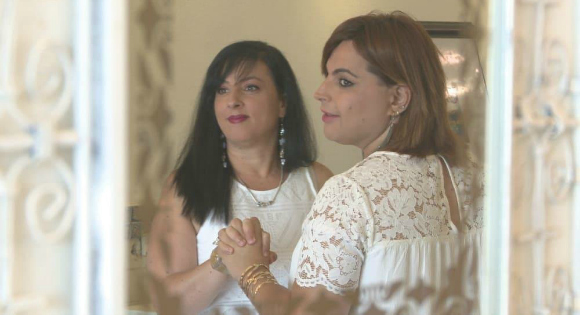At the heart of Ofir Trainin’s riveting documentary is the abundant love that connects Amit and Galit Tzuk to one another and to their family. And while Amit’s coming out and transitioning to life as a transgender woman is the film’s main event, the shifts that the entire family’s devotion undergoes over the course of the film’s brief running time expand this story into a transformative universality that will affect many viewers, regardless of their proximity to the central subject matter.

Amit and Galit are childhood sweethearts living in the very traditional Israeli town of Nahariya. Together since they were 15, the couple has journeyed through seven years of friendship and 20 years of marriage, bringing four children into the world, and are still as warmly dedicated to their relationship as anyone could wish. From the opening moments, this fierce faithfulness is clear, as Galit calmly urges a nervous Amit to go through with a planned coming-out gathering. With Galit looking proudly on, Amit finally enters hesitantly but elegantly, carefully made up to outwardly reflect the woman Amit has privately and inwardly fostered for years.
Following this brave moment of self-disclosure, the signs of commitment continue to build. Galit is staunchly determined to accompany Amit to her sex change operation in Thailand, and the couple’s children, all disarmingly reflective and open-minded, express nothing but enthusiasm for their parents’ decisions. The clarity with which Amit and Galit and their children discuss the realities and possibilities inherent in their unique family dynamic is stunning. It offers a jarring juxtaposition to the vocal onlookers who either question or openly mock them from the sidelines. This might be a family in transition, but it is also a family intent on actively becoming who they are meant to be, constantly asking questions of the status quo and trusting their radical familial love with uncommon fervor.

That the story takes a sharply somber turn following Amit’s operation seems simultaneously jolting and inevitable. Amit is certainly the family member going through the most physical changes, but the emotional lives of all involved begin to unspool in challenging ways both related to and transcending Amit’s transition. Galit, still strongly committed to supporting Amit, also begins to come into her own deep self-discovery, one that points her toward new horizons that will change the family forever. And the children remain characteristically reflective and articulate, even as the cocoon of their family cracks painfully open to give way to unexpected and challenging new realities.

In the end, it’s the same unwavering affection that has been apparent from the film’s start hover around the family, though much more than Amit’s physical body and confidence has changed. This poignant portrait gives much-needed visibility and voice to the realities of the transgender community, while also celebrating families who shirk stifling societal conventions in order to follow their own hearts and embody new promises for the transformative power of unconditional and unshakable love.
